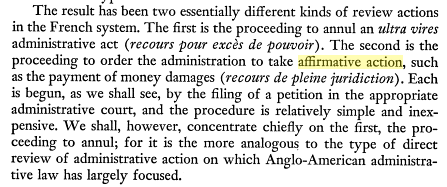Is a fish a "tangible object"?
Or more precisely, is a fish a "tangible object" in the sense that throwing undersized fish overboard would fall within the purview of 18 U.S.C. § 1519, which states that
Whoever knowingly alters, destroys, mutilates, conceals, covers up, falsifies, or makes a false entry in any record, document, or tangible object with the intent to impede, obstruct, or influence the investigation or proper administration of any matter within the jurisdiction of any department or agency of the United States or any case filed under title 11, or in relation to or contemplation of any such matter or case, shall be fined under this title, imprisoned not more than 20 years, or both.
John Brewer alerts us to the fact that the Supreme Court has recently agreed to review the holding of a lower court that the noun phrase "'tangible object,' as § 1519 uses that term, unambiguously applies to fish.”
Read the rest of this entry »

